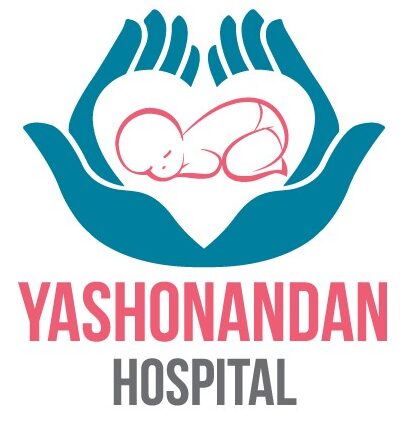Understanding Mumps: Causes and Symptoms
Keeping your children safe from ailments is a top priority, and understanding mumps is part of that. Mumps is a contagious virus, spreading through sneezes, coughs, or shared utensils. Knowing a bit about this virus helps parents take informed actions to protect their kids.
Initially, symptoms of mumps in children can look a lot like a cold or flu. Kids might have a fever, headache, or feel tired and achy. Parents need to stay alert because these signs can be quite subtle at first.
A big clue to look out for with mumps is the noticeable swelling near the jaw. This swelling, often on both sides of the face, happens where the salivary glands are, and it can cause some discomfort or pain. Recognizing early symptoms of mumps in children ensures timely attention.
Though mumps often resolves without major issues, severe symptoms need immediate medical help. If your child struggles to eat, has a stiff neck, or experiences severe headaches, these could be signs of complications. Mumps complications awareness helps parents act swiftly.
When doctors suspect mumps, they usually do a saliva or blood test to diagnose it. These tests are pretty reliable, giving parents peace of mind that help is just around the corner. Understanding mumps health advice parents need, involves learning about these symptoms and how to detect them early, ensuring kids stay safe and healthy.
Mumps Prevention, Vaccination, and Home Care
No parent wants to see their child unwell, so prevention is key. One of the best mumps prevention tips is vaccination. Vaccines are safe and effectively guard against mumps, significantly lowering the chances of children catching it.
The mumps vaccination schedule typically includes two doses. These doses help build immunity, and sticking to this schedule is vital. It’s a key strategy that parents can use to protect their little ones and homes against the mumps virus in toddlers.
Preventing mumps at home can seem daunting, but it’s manageable with some simple strategies. Teach kids to wash their hands often, cover their mouths when sneezing or coughing, and not to share utensils or drinks. These mumps prevention tips involve easy habits that make a big difference.
For children harboring the virus, comforting them is vital. Home care for mumps includes plenty of rest, staying hydrated, and using warm or cold packs on swollen areas for relief. Soft foods may ease chewing discomfort. Some parents also explore natural remedies to soothe their child.
Misconceptions about vaccines often cause worry among parents. Rest assured, vaccines for mumps are tested for safety and effectiveness. Stay informed and don’t let myths sway you. Choosing vaccines is crucial in mumps health advice parents need, emphasizing their role in thwarting the virus.
Risks and Complications: The Importance of Early Detection and Treatment
As children grow, the severity of mumps can increase, highlighting the significance of early recognition. Mumps complications awareness underscores that catching and treating mumps early helps prevent severe issues like meningitis or hearing loss, which become more probable as children age.
Swift and proper treatment is essential to safeguard against these complications. Early detection makes treatment straightforward, often involving rest and symptom relief right from the onset.
Knowing which signs to heed is crucial for a parent. If your child appears distressed, has persistent nausea, or swelling beyond typical mumps symptoms, seek medical advice immediately. This ensures that complications are avoided with timely intervention.
Parents managing mumps virus in toddlers need strategies to help infected children and protect those around them. This includes isolating the sick child until the risk of contagion fades, usually after about a week. Teach kids about hygiene practices to keep everyone safe.
Mumps health advice parents benefit from includes understanding both risks and complications. Early detection and appropriate responses minimize adversity. Equipped with this knowledge, you can confidently face this challenge, keeping children safe and healthy.
Treatment Options and Additional Considerations
Handling mumps involves a blend of professional care and home remedies. Mumps treatment guidelines often suggest pain relief medications, fluids, and plenty of rest to ease symptoms. Warm compresses can also help reduce gland swelling.
Parents should immediately seek professional help if symptoms worsen or extend beyond a week. Doctors might offer advice tailored to your child’s specific needs, ensuring effective recovery.
After mumps, regular check-ups are wise. These visits help monitor for any delayed complications that might appear, ensuring lasting health and peace of mind.
There’s a lot of advice floating around about mumps, and it’s easy to get overwhelmed or even misinformed. Stay informed with accurate data and don’t rely on myths or hearsay. Dispelling these myths helps reduce unnecessary worry.
By staying informed and proactive, parents can effectively manage mumps, keeping their children healthy and relieved from the virus’s grasp. Through thoughtful prevention, swift treatment, and attentive care, tackling mumps becomes manageable, ensuring peace within families. Keeping an eye on mumps treatment guidelines and preventive steps ensures every parent’s peace of mind.
Mumps is a contagious viral infection that can affect both children and adults, causing swelling in the salivary glands, fever, and discomfort. Early detection and prompt treatment are crucial to prevent complications, such as meningitis or hearing loss.
If you’re concerned about mumps symptoms or need more information on prevention and treatment, Yashonandan Hospital is here to help. Our experienced healthcare professionals provide comprehensive care, from diagnosis to effective treatment plans, ensuring the health and well-being of your family.
Contact Yashonandan Hospital today to schedule a consultation and receive expert advice on managing mumps and protecting your loved ones.

